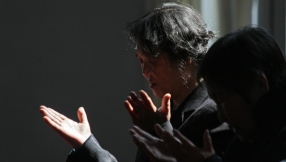
This was revealed by a new research conducted by Bluefield College, which also shared that the most popular Bible verses of 2015 are Romans 15:13, Joshua 1:9, Proverbs 3:5, and Philippians 4:6.
"From the time of its publication in 1611, the King James Bible has been used to spread the gospel throughout the whole world. With the conquest of the British Empire behind it, it crossed the Atlantic to the United States," stated the Christian Assemblies International.
"Landing here, it began to permeate young America with its ideals. Its truths led to the establishment of an educational system, based on Scripture, that was unparalleled in the world. It instilled in men the ideals of freedom and personal liberty, thoughts that were included in the U.S. Constitution," it added.
"It commissioned preachers of righteousness who, on foot and horseback, broke trails into the wilderness and spread the Truth of the gospel and of right living. And eager young missionaries began to scour the globe with little more than a King James Bible and God's Holy Spirit."
The next most popular version is the New International Version, which is used by Baptist and Pentecostal denominations. The New King James version is used by Orthodox Christians, while the Kleist-Lilly New Testament is used by Roman Catholics. The New World Translation is popular among Jehovah's Witness, the English Standard Version among Lutherans, and the Common English Bible among Methodists.
However, Andrew Lawrence, who is the associate vice president for Online and Distance Education and instructor of management and leadership at Bluefield College, told Charisma News that their research does not automatically mean that the King James Version is the number one translation of choice.
Their research also looks at the change in religious landscape of the United States, based on Pew Research studies and Google analytics which revealed that those who claim to be Christians dropped 7.8 percent from 2007 to 2015, while those who consider themselves religiously unaffiliated grew by 6.7 percent.













